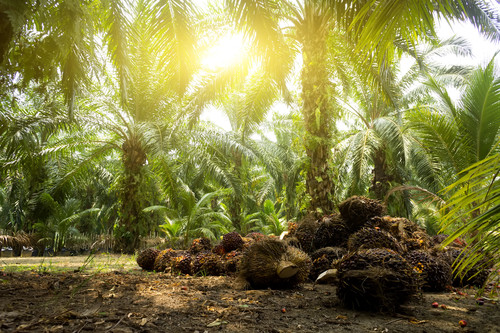Popular Reads
Top Results
Can't find what you're looking for?
View all search resultsPopular Reads
Top Results
Can't find what you're looking for?
View all search resultsGovernment hikes export levies as global CPO prices rise
The progressive export levy on CPO could increase biodiesel consumption in 2021 by easing the subsidy burden, but the industry association has said producers need a grace period to recover from the earlier price fall.
Change text size
Gift Premium Articles
to Anyone
I
ndonesia, the world’s top palm oil producer, is to impose higher export levies on crude palm oil (CPO) starting Thursday as the price of the commodity rallies ahead of the year-end. The policy also aims to support the government’s mandatory biodiesel program.
The recently issued Finance Ministerial Regulation No. 191/2020 imposes progressive export levies ranging from US$55 to $255 per metric ton of CPO depending on the reference price. In comparison, the previous regulation imposed a flat CPO levy of $55 per metric ton, regardless of price.
So under the new regulation, a $55 per metric ton will be imposed if the CPO reference price is $670 per metric ton or below, with the levy increasing between $5 and $15 for every $25 hike per metric ton of CPO.
Food and agribusiness coordination deputy Musdhalifah Machmud at the Office of the Coordinating Economic Minister said the new policy aimed to improve the plantation revitalization programs and to support the government’s 30 percent palm oil biodiesel (B30) program. She added that the policy would be evaluated every month to adjust to economic conditions.
“All parties are expected to support the government’s policy because every policy regarding palm oil aims to make it sustainable, given its crucial role in the national economy,” Musdhalifah said on Wednesday.
The policy enters into force on Dec. 10, one day after global CPO prices rallied on Wednesday to close at 3,636 ringgit ($894.80) per metric ton, after reaching the lowest price of the year in May at 2,000 ringgit per metric ton as the coronavirus pandemic sent shockwaves throughout the commodity market.
The Indonesian Oil Palm Association (Gapki) stated earlier that domestic consumption would drive demand growth for Indonesian palm oil this year as exports fell during the pandemic, while domestic demand would be propelled mainly by the B30 program.
The B30 program is part of the government’s efforts to absorb at least 9 million metric ton of CPO every year to achieve its 2025 renewable energy target of 23 percent.
Gapki data released in September projected a 1.2 percent year-on-year (yoy) uptick in domestic consumption this year to 15.8 million metric ton.
The government has been upbeat about the commodity’s recovery in 2021, with Coordinating Economic Minister Airlangga Hartarto citing earlier this month a slight 2.7 percent CPO price hike to $668 per metric ton next year, from an estimated $650 per metric ton this year.
Apart from CPO, the new regulation raises the amount of progressive export levies on refined palm oil products, albeit starting at a lower rate.
Fitch Ratings said on Wednesday that the higher export levy would likely grow Indonesia's biodiesel consumption in 2021 by increasing revenue collection to fund the subsidy burden, and that it could boost average CPO prices to above $560 per metric ton in 2021.
“Increased export levies should support Indonesia's efforts to boost blending and consumption of biodiesel, made from CPO, despite being much more expensive than regular diesel,” the ratings agency noted.
Increasing biodiesel use in Indonesia had been a key driver of global demand growth in palm oil in the past three years, Fitch said, adding that “risks to global CPO demand will abate if the new levy structure is sustained and Indonesia's biodiesel consumption grows”.
Separately, Gapki acting general secretary Agam Faturrochman commented that the new levies were “too high”, since businesses needed to compensate for the fall in CPO prices earlier in the year.
“We are surprised [by the policy] because the export levies are too high,” he said as quoted by Kontan, and urged the government to review the policy.
Gapki spokesperson Tofan Mahdi, who is also corporate secretary at palm oil producer Astra Agro Lestari, told The Jakarta Post that the industry would need to review the policy to assess its impacts on the export and corporate performance.
“Although the surge in palm oil prices provides a boost to industry players and hopes of higher foreign exchange earning, the higher price presents a new challenge for the government, particularly on the sustainability of the mandatory biodiesel program,” he said.
Meanwhile, Gapki estimates that this year’s palm oil exports will drop 18 percent yoy to 24.92 million tons, primarily as the European Union, Chinese and Indian markets shudder amid the ongoing pandemic.










